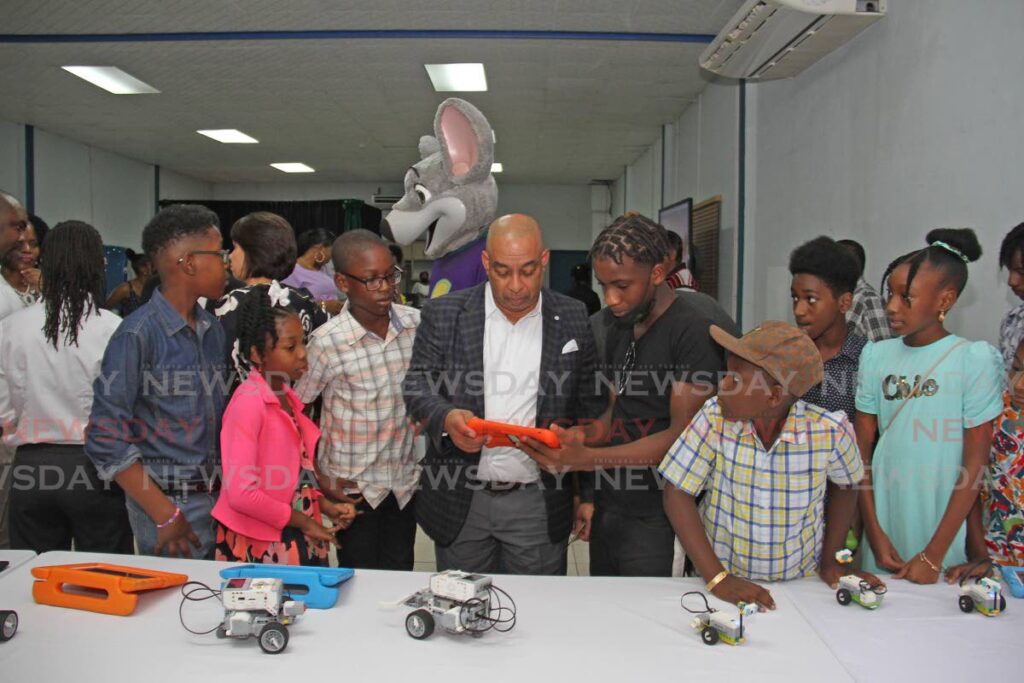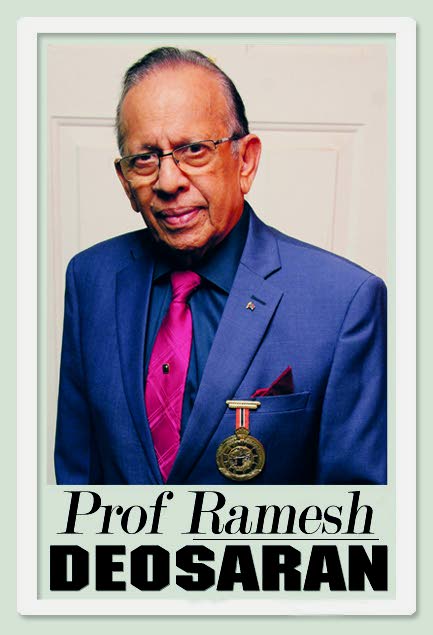Goals to inspire and achieve

In the midst of troubling youth violence, gangs and deficient parenting, there is a number of voluntary organisations seeking to provide some healing and hope, particularly for the youth.
This month, two such organisations caught the public's attention – Kevin Ratiram’s Rapidfire Kids Foundation (RKF) and National Gas Company’s Inspire 2 Achieve (i2A). Ratiram’s foundation is sponsored by Atlantic LNG and See-Vu Optical.
However, in the current, harsh, unfriendly environment, there are challenges that must be overcome for successful results. Loss of hope in the future is a major cause, a psychological deficiency, in the career goals of many young people. Hope, goal-setting and aspirations have motivational powers. That is what the programmes of both organisations strive to achieve.
We cannot allow youths to lose hope. Hope should spring eternal in the human heart. Without hope in the future, desperation steps in. People stuck in a faraway boat live on hoping somebody will save them. Bedridden patients hope to get better soon. Backed by parents, children writing SEA hope to get into a "prestige school." Losing hope brings a person close to suicide. Whatever this country’s troubles – political, economic or social – there are so many people and organisations that bring hope for better tomorrows. And I remain amazed at that, at the human spirit to survive in the midst of adversity.
NGC’s i2A project for the seven-17 age group seeks “to inspire youths to dream big” over a three-year period. It says “we aim to inspire youths to dream big and to equip them with the knowledge and skills to transform their dreams into reality.”
I hope these “dreams” are not only about becoming “lawyers and doctors.” Such heavily entrenched, culturally-idealised occupational goals, noble as they are, still remain grammar-school-type professions.

Notably, from within poor, working-class communities, those are the professions that are largely celebrated before all others – not anything much about technical and vocational achievements. But not all young people, for well-known reasons, can become, or in fact, should seek to become a lawyer or doctor.
But while such individual success is deserving of celebration, we have to be careful that it is not the only criterion for success. However, I also know that this cultural value will not change any time soon. And becoming a very skilled technician or a brilliant IT specialist will still have to wait its turn on the pedestal. Generally, setting goals and achieving “worthy” careers have always been a critical challenge for youths, especially from working-class backgrounds.
As researcher at the Toronto Board of Education, I published a study, Educational Aspirations: What Matters? (1975). It showed, among other things, that while many poor, working students had as much ability as middle or upper-class ones, they lacked the academic self-concept to succeed.
That is why NGC’s project is so desirable for the poor youths of Moruga. Family life, peer groups, role models and available material resources help shape occupational aspirations. That is why celebrating the individual success from the ghetto or depressed community seems so ground-breaking. It is celebrating the exceptional, hoping it will some day become the community norm.
That is for those who practice American poet Henry Wadsworth Longfellow's advice: “The heights by great men reached and kept/Were not attained by sudden flight/But they, while their companions slept,/Kept toiling upwards in the night.” I always like the phrase “reached and kept.”
The struggle is against social class barriers which require not only hope but determined aspirations, goal-setting and, for working-class youth, the courage to overcome and succeed. No doubt then, this is also part of RKF’s programme, which was blessed by RC Archbishop Jason Gordon early this month. Ratiram’s major objective is to help his youthful membership “break barriers.”
In 1964, two anthropologists did a post-independence study on this country’s youth. The report was entitled We Wish to be Looked Upon (Vera Rubin and Marisa Zavalonni). Testing the effects of the “excitement from independence,” among the authors' intriguing findings was the preponderance of “unrealistic aspirations” – astronaut, neurosurgeon, etc. They saw this as “unrealistic” because of the academic level and socio-economic background of the students measured. However, I would expect that at least one or two of those “dreamers” would have achieved their aspirations, with burning hope, persistence and hard work.
Hopefully, the outliers will always be there.


Comments
"Goals to inspire and achieve"